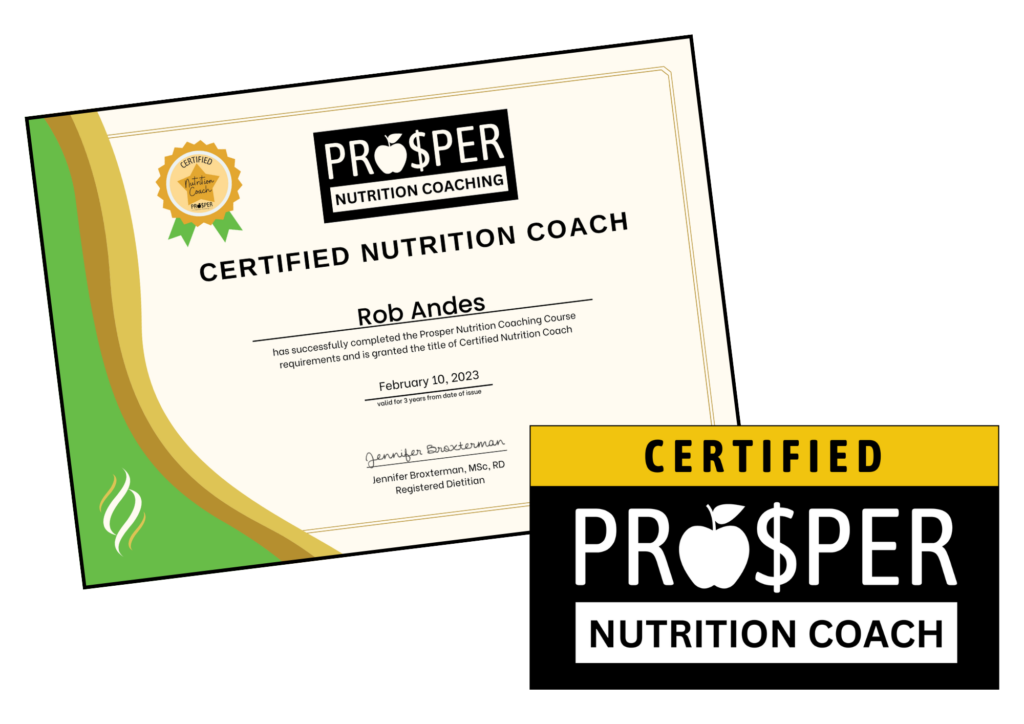

Best Motivational Interviewing Books
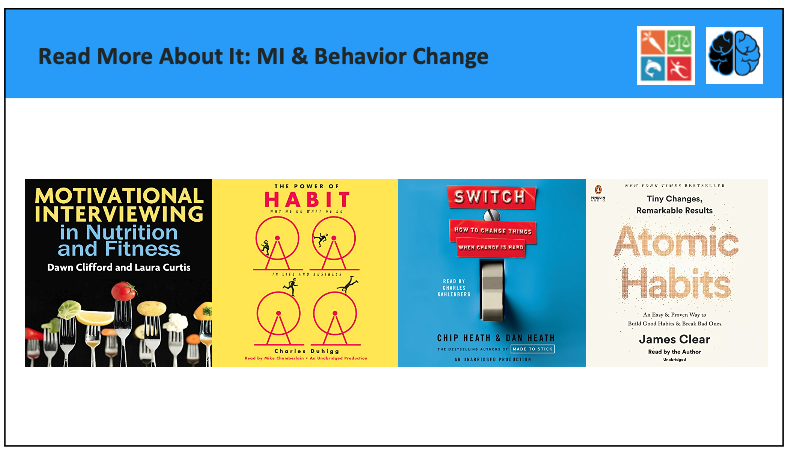
Four Must-Read Books to Make You a More Effective Nutrition Coach
If you’re a nutrition coach, your number one priority is probably (hopefully) helping your clients see lasting results.
And sometimes it can be frustrating when it appears as though your client lacks compliance and isn’t making the necessary changes required for them to get what they want.
In more than a decade of experience as a Registered Dietitian, I have learned a few tricks to help clients make real, sustainable lifestyle changes and see results. Three of the big ones include:
- motivational interviewing (MI)
- helping them figure out their triggers
- helping them create a more supportive environment
Now I can’t take all the credit. In fact, one of my best tools has been learning from books (I’m a bit of a nerd). Four of the best books I’ve ever read on the topic of motivational interviewing and helping people to change their behaviour include:
Atomic Habits by James Clear
This one is probably my favourite book out there for health coaching. It delves into teaching people how to make small, incremental habits to create a more supportive environment. This is so powerful, because when your environment supports your intentions, then you don’t have to rely on mustering up crazy amounts of willpower to avoid actions you don’t want to be taking.
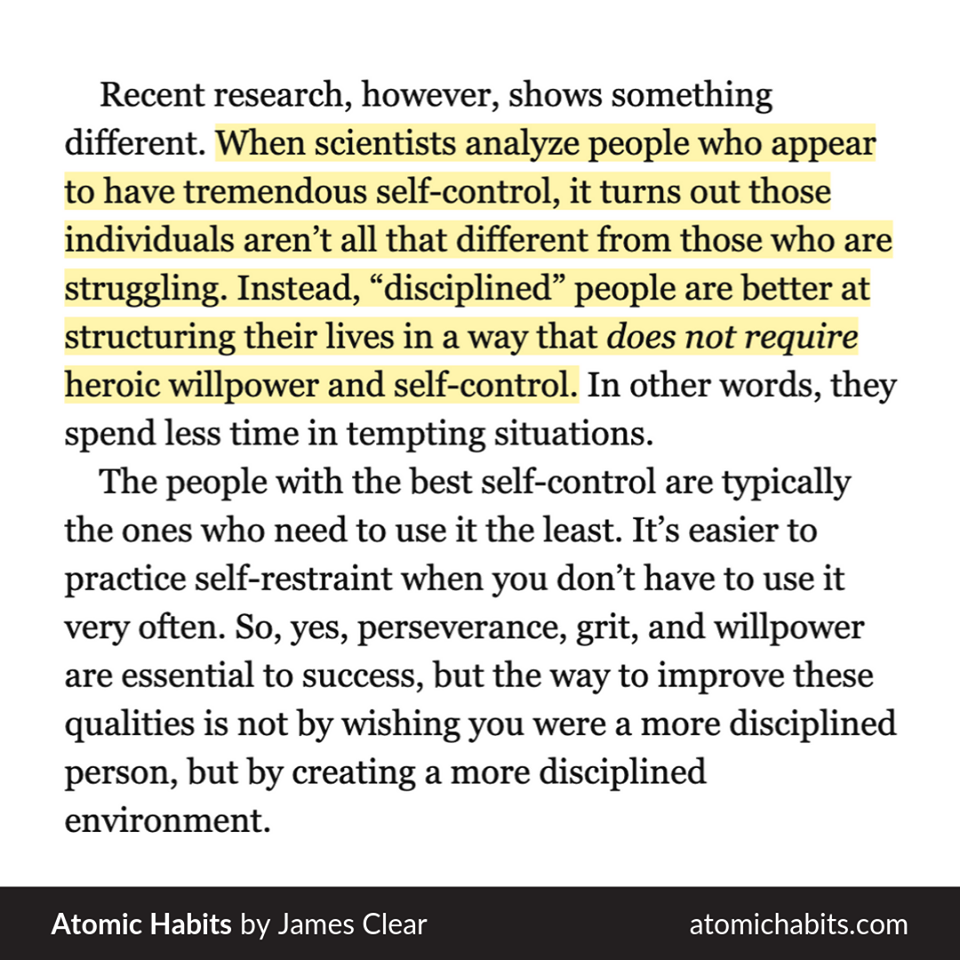
Food for thought: In his book, Clear says this: “When scientists analyze people who appear to have tremendous self-control, it turns out those individuals aren’t all that different from those who are struggling. Instead, “disciplined” people are better at structuring their lives in a way that does not require heroic willpower and self-control. In other words, they spend less time in tempting situations.
Case in point: If someone is whipping up a batch of freshly baked chocolate chip cookies, chances are they’re going to be difficult to resist. But if there are no cookies in the house—if you’re not smelling them as they bake—you’re probably not thinking about cookies, let alone devouring six of them.
The opposite is also true—if you build incredibly supportive environments around you, it’s much, much easier to execute the “healthy plans” you have in your head. For example:
- Having a healthy lunch packed in the fridge at night means there’s a much better chance you’ll be eating a nutritious and balanced meal at work the next day.
- Having your gym bag sitting by the front door means you’re less likely to skip your planned workout.
- Having your phone chime out a gentle bedtime alarm means there’s a greater chance you’ll get to bed on time and won’t be yawning the next morning.
- Having a chopped up veggie bucket in your fridge means there’s a good chance you’ll eat more fibre and nutrient-dense whole foods if they’re grab-and-go.
A second important lesson in the book, which I often use with my nutrition clients, is the idea of embracing the process and paying attention to where they’re heading, as opposed to where they are now. As Clear explains: “You should be far more concerned with your current trajectory than with your current results.”
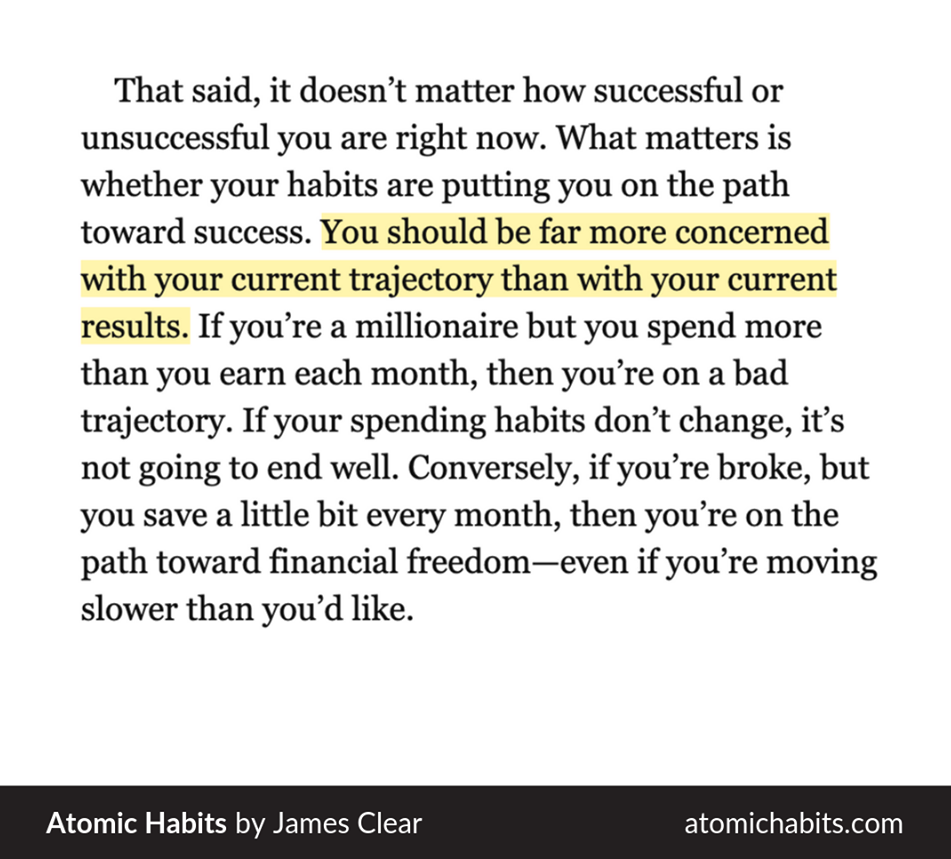
- Helping clients do this involves steering them to a place where they focus on the small steps they’re taking now, which will change the trajectory they’re on, as opposed to thinking that massive success requires massive action right now. It’s the whole idea of becoming one percent better each day for one year: One percent isn’t much, but it adds up over time.
- On the flip side, one unhealthy meal today won’t do much damage, but the small choices over time will compound and do damage.
The takeaway: Focus on creating sustainable systems to support daily, imperfect small steps that your clients can do easily and consistently, as opposed to taking a results-oriented approach that demands massive change right now. When you do this, your clients will fall in love with the process rather than the product. And this is the true key to lifestyle change success.
If you’re a nutrition coach and you haven’t read Atomic Habits yet, add this book to your MUST READ list to help your clients better change their behaviour and make it stick.
Motivational Interviewing in Fitness and Nutrition by Dawn Clifford and Laura Curtis
This book is truly the gold standard for health and nutrition coaches who are curious about motivational interviewing.
Quick definition: Motivational interviewing is about asking thoughtful questions that help a client explore their goals, motivators, and obstacles in the context of their real life. This allows them to feel supported and in control of the direction they want to go with their decisions and habits.
- In other words, motivational interviewing helps the client be in charge of where they want to go and what they’re ready, willing and able to tackle. Once the client has self-explored their goals, motivators and the obstacles that get in their way, then the coach and client can work together to come up with a plan to create the right level of challenge to get them what they want.
Food for thought: Motivational interviewing is the opposite of coach-centric coaching, where the coach might provide a specific meal plan with specific hydration and bedtime prescriptions he thinks will help the client. That’s something we refer to as coach-centred coaching.
CLIENT-CENTERED vs. COACH-CENTRED COACHING
When a client takes the lead and is part of the prescription, they are much more likely to comply compared to when a coach just tells them what to do. We call this client-centred coaching.
- Here’s an example: Let’s say you have a parent who isn’t getting enough sleep because their child keeps waking up and coming into their room. The coach-centric coach might simply say, “It’s easy, just put a lock on your door. Boom, problem solved!” Though it seems like a simple solution to the coach, it doesn’t consider whether the parent is even willing to do that. Maybe the parent is thinking, “I can’t do that! What if my child has a nightmare, or an emergency, and needs to get me. There’s NO WAY that solution would work based on the age of my kids.” Motivational interviewing, however, can help the coach and client work through the situation and come up with a plan the parent is comfortable with. Maybe the client decides to work out a plan with their significant other that they trade off who gets to sleep in on weekends, or they ask the in-laws to babysit for one overnight sleepover per week (or month), or they set a bedtime alarm to go to bed earlier, or any number of solutions that realistically support getting more sleep, without putting a lock on their bedroom door. That’s using Motivational Interviewing effectively to be more client-centred in the way you coach a healthy behaviour change.
- When you’re working with clients, you’re going to have way more success if you consider the reality of the person’s life, as opposed to simply coming up with theoretical solutions and prescribing them to your client to follow verbatim.
WHAT, not WHY Questions
Final tip: Motivational interviewing questions usually start with what, as opposed to why.
When someone asks why, it almost automatically puts the person in a position where they have to defend their position. For example:
- Why is your room a mess?
- Why didn’t your homework get done?
- Why were you out so late?
- Why weren’t your goals from last month accomplished?
Versus
What questions are more curious and exploratory. For example:
- What were your struggles last month?
- What’s currently going well for you?
- What does your first step look like?
- What are some other choices you could make?
- What are you hoping to get out of today’s appointment?
- What will you commit to?
- What do you want to congratulate yourself for?
Final thought: If a client isn’t compliant, it probably isn’t that they aren’t motivated. It simply means there are competing priorities, and motivational interviewing can help them figure that out and find a practical, real life solution.
The Power of Habit by Charles Duhigg
What I really liked about The Power of Habits is how it helps me work with my clients to uncover their triggers. In other words, if someone is an emotional eater, there’s likely something that triggers this, and over time the brain knows it gets a reward from stress eating chocolate.

Step one is understanding that habits can change. We have the freedom to remake them. Once our clients understand this, then the power of habit is much easier to understand, and now comes the time to do the work.
This is where nutrition coaches come in: We can help our clients, not just identify their triggers, but also figure out how they’re connected to the reward. From there, we can work together to help them re-learn these habits.
Here’s how: Habits involve a cue, a routine, and the reward. The key to changing it is not to try to change the cue, but simply to insert a new routine. So now when the cue (aka craving) kicks in, you can replace it with a new, healthier routine and continue to get the same reward (relaxation, excitement, reduction of boredom, anxiety management, or whatever the brain was seeking by using food to self-soothe).
Success story: I worked with a university student who stress ate at night, and especially during her midterm exams. After figuring out her triggers and uncovering the reward she got from munching on chips, she was able to replace stress eating with what we called The Three S’s: sleep, shower, sex. By the way, this was her list she came up with when I used motivational interviewing to help her talk through the cue → routine → reward loop her brain was caught on.
Now, when she feels stress and anxiety, instead of turning to snacking, she has taught herself to either shower, call it a night and go to sleep, or have sex with her boyfriend, all three of which provide her with the same reward as potato chips: reduced stress. (Her boyfriend was pretty happy with this list as well!)
Switch by Chip Heath and Dan Heath
This is the book I read first when I was just starting to explore the topic of Motivational Interviewing early in my dietitian career. It came recommended from two expert motivational interviewing teachers on the very first MI course I ever took, and it did not disappoint.
This book provides a brilliant metaphor about an elephant and the rider. The rider represents the logical, rational, rules-based side of us, and the elephant represents the emotional side.
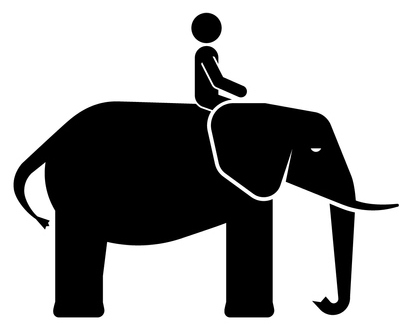
In short, to make progress, you need both the elephant and the rider. The elephant provides the energy and the rider provides the direction. So together, they must learn to work in harmony, but if the elephant becomes overly emotional or exhausted, the rider loses the ability to control the elephant. However, when they work together—when the elephant is motivated and the rider is directed in the right direction—behaviour change can finally happen.
On a practical level, this largely comes down to the idea of self-sabotage. In order to reach your goals, you need to avoid self-sabotage, and you do this through shaping a supportive environment to help both the rider and the elephant have a smoother ride.
Real life example: Always having a freezer full of healthy, pre-made meals on hand for lunches or dinners will make it easier to make a good dinner decision on those nights when you’re exhausted or get home late from work. This environment means it’s easier to pull out your yams and pulled pork and broccoli that you batch cooked on the weekend than it is to order pizza from Uber Eats. In this sense, the rider made it easier for the elephant to stay on path when the elephant is struggling from a long day at work.
Key takeaway: Behaviour change isn’t about helping your clients comply through willpower; it’s about helping them make supportive changes to their environment that creates a place where making the healthy choice is the easy one.
Four books, four ways to show up as a better coach for your clients
I hope those book recommendations can point you in the right direction of some awesome reading material to help you continue to hone your skills as a coach. If you work in the field of nutrition and health, our job is to not only help our clients learn to eat healthier, but truly master the art (and science) of behaviour change to make good habits stick for the long run. Learning more about motivational interviewing and habit formation is one of the best investments you can make as a nutrition coach!
Wishing you health & happiness,
♡ Jen
Jennifer Broxterman, MSc, RD
Registered Dietitian
NutritionRx: happy, healthy living with our team of Registered Dietitians
Prosper Nutrition Coaching: a world-class nutrition coaching certification
+
+
+
Want to work with a NutritionRx Registered Dietitian?
Learn more here: Nutrition Packages & Rates

+
+
+
Want to become a Certified Nutrition Coach?
Learn more about our habits-based Prosper Nutrition Certification
